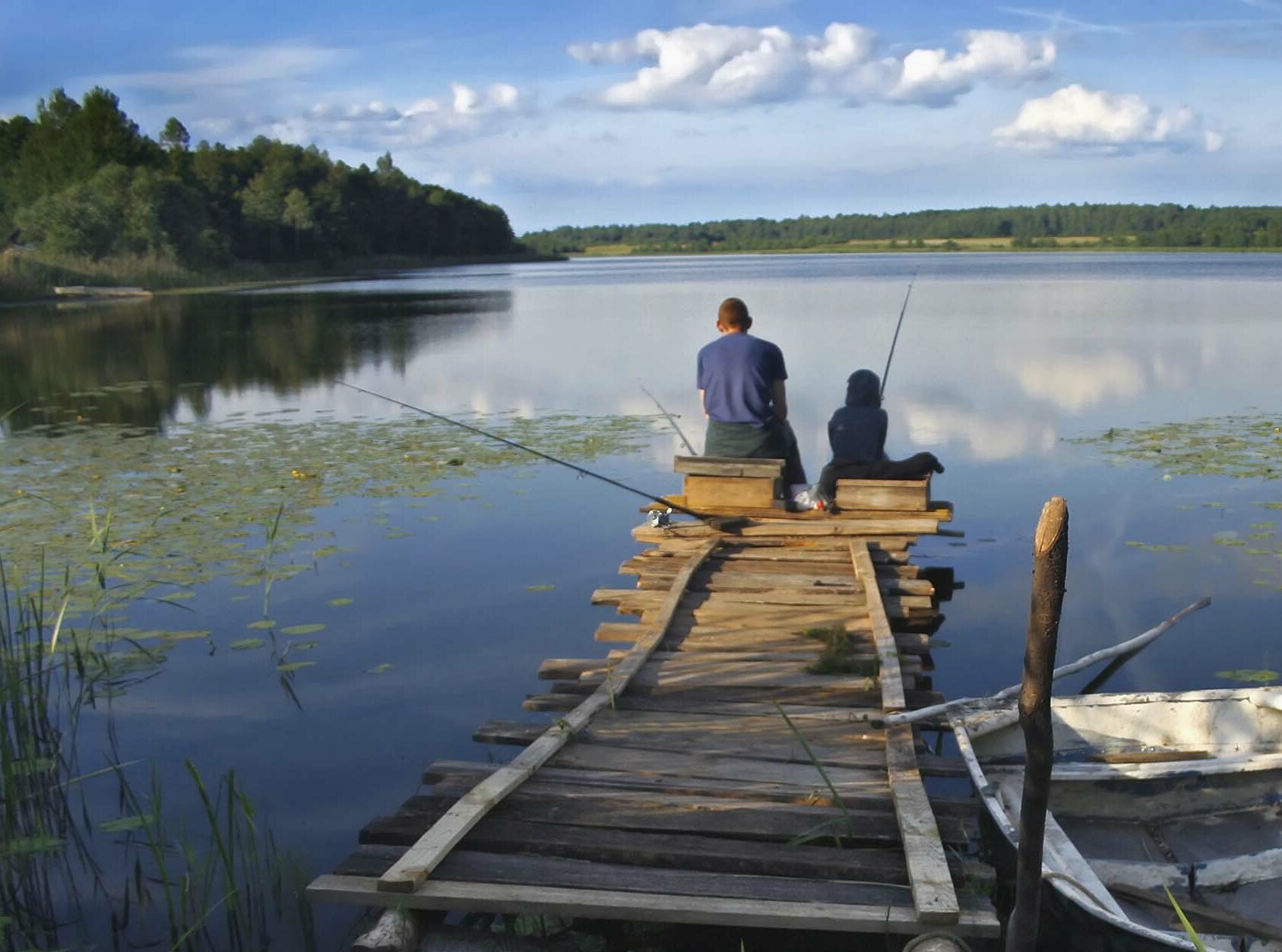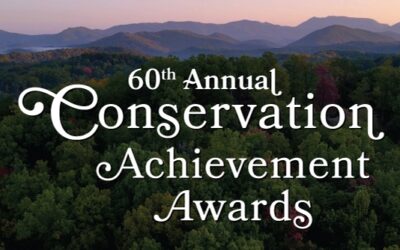Tennessee Wildlife Federation was founded on the principle of shaping and advocating for sound conservation policy at local, state, and national levels. This year was no exception as we leveraged our growing team, including our conservation policy manager Lindsay Gardner and lobbyist Joe McCord to ensure your message for wildlife was heard in the Tennessee State Legislature.
The Federation’s policy team worked on dozens of issues facing the state’s wildlife and natural resources, as well as the Tennesseans who enjoy them. While many issues were tackled, Tennessee Wildlife Federation informed and advocated for nine notable bills and amendments this legislative session.
Quick Links to the Issues
- Sharing Recreational Waters
- Keeping Politics out of Stormwater Oversight
- Wildlife and Wind Energy
- Oversight of Concentrated Animal Feeding Operations (CAFOs)
- Local Tax Support for Adding Wildlife Areas (Pilot)
- Public Notice of Aquatic Pesticide/Herbicide Use
- The Plight of Bobwhite Quail
- Hunters For the Hungry Appropriation
Bill: Sharing Recreational Waters (SB1335, HB0785)
The Federation’s Position: In favor
Status: Passed
The Problem: As the state’s population increases and more outdoor recreation businesses draw individuals to Tennessee’s waterways, there are growing numbers of cases where one person’s recreation negatively impacts and sometimes prevents someone else’s. When commercial operators rent non-motorized boats—paddlecraft such as kayaks and canoes—to large groups, it can too often reduce fishing opportunities along stretches of public waterways as well as limit others’ reasonable use of boat ramps.
Importance: Public lands and waters are required to support many types of use—that is the spirit of lands and waters being held in the public trust. This legislation gives the Tennessee Fish and Wildlife Commission the authority to create rules to address commercial operations that lease paddlecraft for recreational use by the public. It excludes commercial outfitters operating with a U.S. Forest Service permit on waters in and near the Cherokee National Forest, as these waters are already governed by federal agencies in those areas.
The Federation’s Role: The Federation worked to develop the language of this legislation and garner its passage. The actual rules to address commercial operations are slated to be developed and managed by the Tennessee Fish and Wildlife Commission within the next calendar year.
Bill: Keeping Politics out of Stormwater Oversight (SB0295, HB0362)
The Federation’s Position: Opposed original, but support as amended
Status: Passed amended version
The Problem: Proper management of post-construction stormwater runoff is critical to maintaining stream health and water quality. The original language of this stormwater bill attempted to take permitting authority away from Tennessee Department of Environment and Conservation (TDEC) and place it in the hands of the General Assembly. This would have politicized the clean water permitting process and allowed home developers to disproportionately pollute Tennessee’s waters, harming our stream and river water resources in the process.
Importance: The stormwater regulation bill, as amended, states that rules for the management of post-construction stormwater runoff shall be adopted by the Board of Water Quality, Oil, and Gas. Once these rules are adopted, TDEC can issue National Pollutant Discharge Elimination System (NPDES) permits without them having to first be reviewed by the General Assembly.
The Federation’s Role: The Federation strongly opposed the bill as it was originally proposed and actively worked at the Tennessee General Assembly to halt passage. We were instrumental in amending it to minimize impacts on water quality and the wildlife it supports.
Bill: Wildlife and Wind Energy (SB1793, HB1731)
The Federation’s Position: In favor
Status: Passed
The Problem: It is well documented that large, industrial wind turbines can have significant and devastating impacts on bats as well as soaring and migratory birds. Often, wind turbine installations also drive large habitat loss, including ridgeline habitats that are vital for some species. Tennessee is one of the few states in the nation without any guidance or regulations addressing wind energy facility siting or permitting requirements.
Importance: The bill gives local governments authority over wind energy facility siting and regulates industrial wind energy facilities with turbines greater than 200 feet in height. As wind energy is becoming increasingly popular, it is important that considerations be made for the health of wildlife and habitats. Further, considerations must be made about decommissioning facilities to ensure wildlife impacts are minimized after turbines reach the end of their lifespans. The bill does not affect any wind energy facilities operating or constructed prior to the bill becoming law, nor does it affect local regulations adopted prior to January 1, 2019.
The Federation’s Role: Tennessee Wildlife Federation has serious concerns regarding the implications for wildlife and habitats when wind energy projects are not properly vetted and located. The Federation strongly supported this legislation and actively worked at the Tennessee General Assembly with legislators and all parties to foster support and to promote passage.
Bill: Oversight of Concentrated Animal Feeding Operations (SB2217, HB2317)
The Federation’s Position: In favor
Status: Passed
The Problem: Concentrated animal feeding operations (CAFOs) store livestock waste in lagoons that pose a threat to surrounding natural habitats—particularly streams and rivers—if not properly maintained. CAFO permits for cattle and swine are important tools for large animal feeding operations to minimize pollution impacts to waters and the environment. Without oversight, these lagoons may not be properly maintained and inspected, leading to failures and significant pollution.
Importance: This legislation allows Tennessee Department of Environment and Conservation (TDEC) to continue a state CAFO operating permit program (required for some, voluntary for others), which will result in critical oversight and environmental protections.
The Federation’s Role: The Federation actively worked at the Tennessee General Assembly with legislators and TDEC to develop legislation and helped secure passage. At the same time, the Federation strongly opposed a second CAFO bill (SB2103, HB2168) that would have weakened the CAFO permitting process and provided a loophole for CAFO operators. Thankfully, this bill was halted and did not pass the Tennessee General Assembly.
Bill: Local Tax Support for Adding Wildlife Areas (Pilot) (SB2201, HB2274)
The Federation’s Position: In favor
Status: Passed
The Problem: Historically, there has been effectively no funding provided to cities and counties to make up for property tax revenues that are lost after private lands become public. This includes when the Tennessee Wildlife Resources Agency (TWRA) purchases tracts for wildlife conservation. This creates local opposition to establishing new public lands that are vital for conserving wildlife and Tennesseans’ access to it.
Importance: This legislation establishes a pilot program that reimburses counties for property tax revenues lost when lands are purchased by TWRA for wildlife conservation. The pilot will test this model’s effectiveness in encouraging conservation of strategic lands with wildlife and natural resource values. The cost of lost revenues will be covered by monies from the state’s Wetland Acquisition Fund and Pittman Robertson dollars.
The Federation’s Role: The Federation strongly supported this legislation and actively worked at the Tennessee General Assembly with legislators and TWRA to develop bill language and secure passage.
Bill: Public Notice of Aquatic Pesticide/Herbicide Use (SB2286, HB2538)
The Federation’s Position: In favor
Status: Deferred to summer study
The Problem: Pesticide/herbicide applicators are not currently required to notify the public about when and where they are spraying, including in public waters. This has led to conflicts among pesticide/herbicide applicators, anglers, homeowners, and others who are using these waters—particularly when that use occurs shortly after application.
Importance: This bill requires that individuals and businesses who hold the necessary permits to apply herbicides post a public notice at swimming areas, boat launches, and boat docks when applying herbicides to Tennessee waters. These notices will inform outdoor enthusiasts of possible exposure and allow them to avoid potentially harmful chemicals.
The Federation’s Role: The Federation received complaints from anglers and worked closely with legislators and the Tennessee Wildlife Resources Agency to develop legislation that will help to better inform users of herbicide application.
House Joint Resolution: The Plight of Bobwhite Quail (H.J.R. 0603)
The Federation’s Position: In favor
Status: Passed
The Problem: Over the past decades, there has been a well documented decline in the numbers of wild bobwhite quail, Tennessee’s official gamebird.
Importance: The resolution brings attention to the plight of wild bobwhite quail and encourages actions to support conservation.
The Federation’s Role: A prominent Tennessee businessman and Federation supporter, Mr. Bob Doochin, worked with Speaker Beth Harwell to introduce the resolution. The Federation worked behind the scenes at the Tennessee General Assembly to ensure there were no barriers to passage.
Note: Resolutions passed by the General Assembly are not binding, and do not have the force of law but rather indicate a statement of policy.
Bill: Hunters for the Hungry Appropriation (Filed as a budget amendment in both chambers)
The Federation’s Position: In favor
Status: Dead for the year, but in discussions
The Problem: In Tennessee, more than a million people, including children, do not have access to enough affordable and nutritious food and go hungry every day. Meanwhile, deer are a renewable resource that are overpopulated in large portions of the state.
Importance: With the proposed $100,000 in annual funding, the Federation would be able to expand its Hunters for the Hungry program beyond its current 83 deer processors serving 81 counties. This would provide healthy, lean venison to more needy adults, children, and families while providing another means of controlling the state’s deer population.
The Federation’s Role: The Federation strongly supported this budget amendment and actively worked at the Tennessee General Assembly to promote passage. While our efforts were not successful this year, it is typical to have to work more that one session to establish an appropriation of this type.




